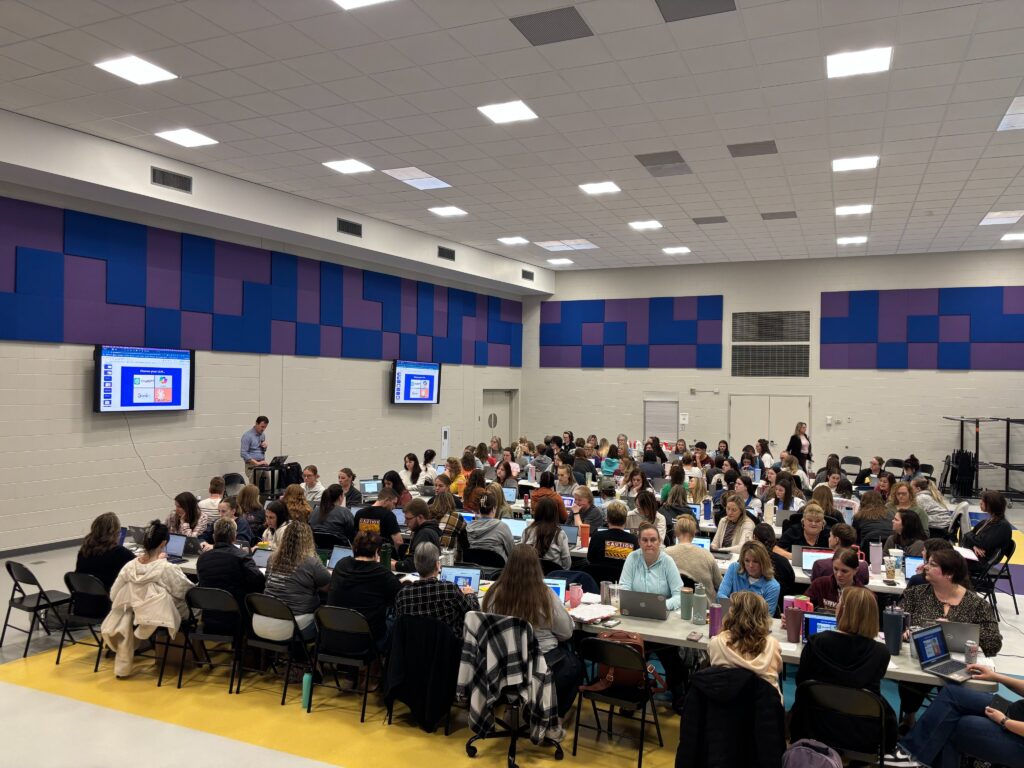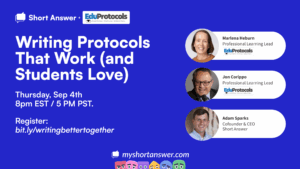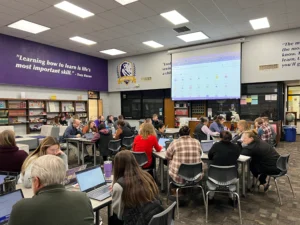Writing Instruction for the Age of AI is designed to equip teachers with the policies, tools, and strategies necessary to meet the challenges – and seize the opportunities – created by AI in writing instruction and assessment. Our workshop focuses on answering one central question:
How do we effectively adjust writing instruction for the age of AI?
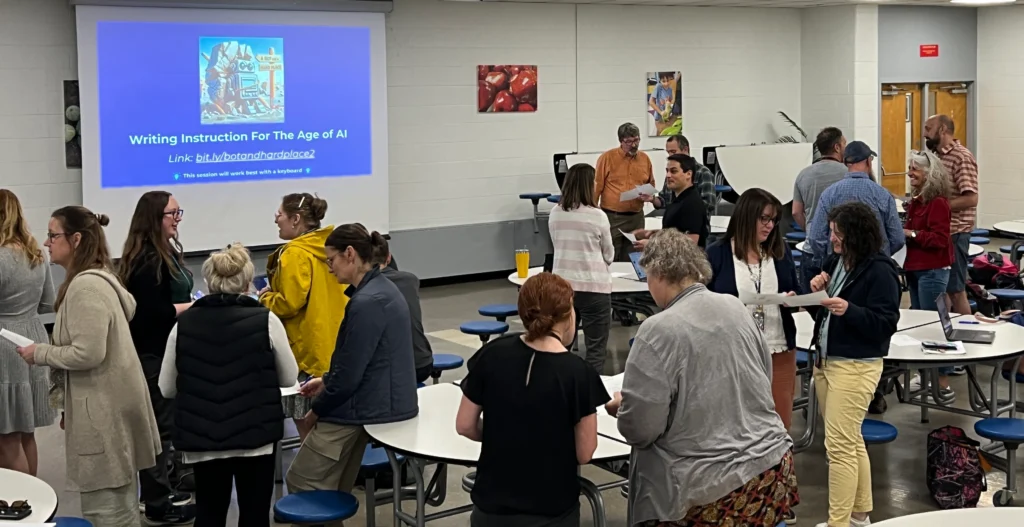
Creators

Adam Sparks is a licensed educator with seven years of secondary English and Social Studies teaching experience. He recently finished his master’s degree in Learning Design & Technology at Stanford where his work focused on formative assessment, writing instruction, and technology integration.

Alexa Sparks is a software engineer with a masters degree in Education Data Science from the Stanford Graduate School of Education, where she studied machine learning, natural language processing, and the other underlying technologies that power Generative AI tools. She’s published original research in Dr. Dora Demszky’s research lab on AI’s ability to provide effective feedback on student writing.
Workshop Overview
Target Audience: 6th-12th grade teachers and administrators
Length: 3-4 hours total (flexible)
Learning Outcomes:
1. Understanding AI: Educators gain a foundational understanding of LLM powered AI, enabling them to explain its basic mechanics and what it can & can’t do.
2. Practical Integration Strategies: Educators develop actionable classroom policies and practices to both limit AI’s influence on student work AND effectively integrate AI into classroom teaching practices.
3. Tool Acquisition: Educators experience a variety of curated teaching tools to implement the workshop framework, including Short Answer, and learn how to use AI safely and effectively with students.
Workshop Structure
Each section of our workshop below is highly interactive, with hands-on opportunities for teachers to demo a variety of practices, policies, and tools that can be used to actualize the concepts discussed.
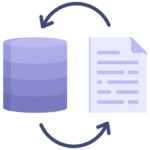
1. AI Basics
- Define what an LLM is and explain how LLM-powered AI works
- Identify some of the major problems with LLMs we need to be mindful of
- Outline safety guidelines for LLM-powered AI in in K12 settings
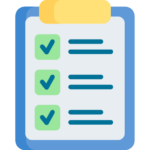
2. Classroom-level AI Policies
- Set clear policies, built on AI Assessment Scale Research (AIAS), for AI use in your classroom
- Use reliable practices and tools to enforce AI usage expectations (i.e. don’t use AI detection software)
- Redefine Academic Integrity as a learning outcome

3. Teach writing without AI in 2025
- Bring more writing practice into the classroom
- Embed writing across the curriculum
- Add “Swiss cheese” layers to writing assessment (and assessment in general)

4. Teach writing with AI in 2025
- Develop an awareness of emerging research on AI integration in K12 settings
- Use a “Gradual Release of Responsibility” framework to guide students toward effective AI usage
- Demo several, research-aligned use cases for AI in the K12 writing classroom
- Safely build and deploy AI activities to use with your students
"I walked into this session nervous about AI. I left with a strong feeling of positivity and feeling excited to use this new technology."
- Workshop attendee feedback, Omaha NE
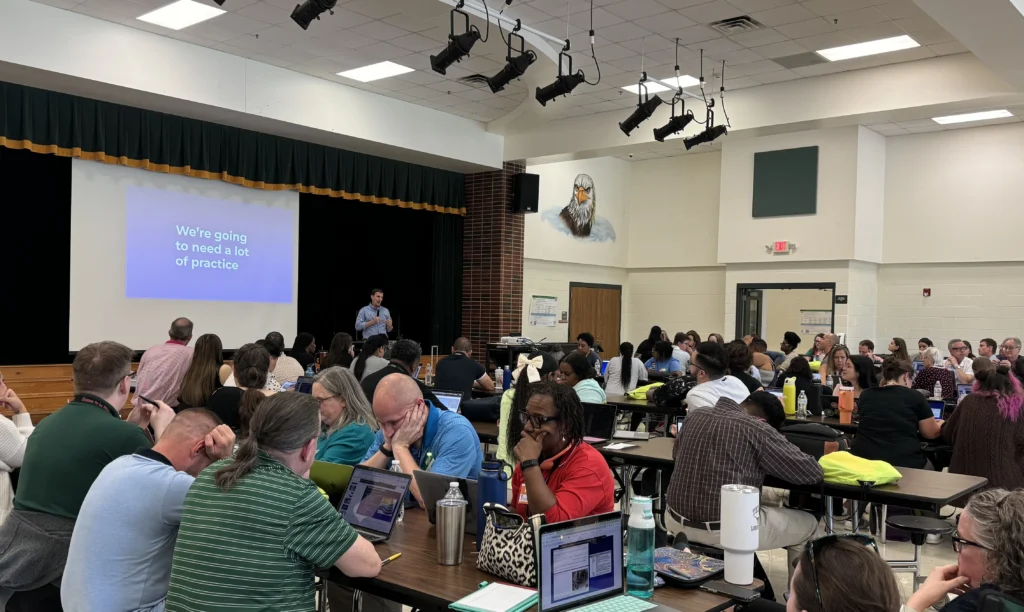
Impact & Feedback
We have delivered this workshop across the world, including:
- Bellevue Public Schools, NE
- Columbus Adventist Academy, OH
- Denison Community Schools, IA (read feedback)
- Educational Service Center 20, San Antonio, TX
- Essex Westford School District, Essex Junction, VT (read feedback)
- Educational Service Center 13, Austin, TX (read feedback)
- Educational Service Center 11, Fort Worth, TX (read feedback)
- Educational Service Center 9, Wichita Falls, TX
- Educational Service Center 3, Victoria, TX
- Grand Prairie ISD, Grand Prairie, TX
- Hays USD 489, KS
- Holy Innocents’ Episcopal Day School, GA
- Lehman Foundation for Brazilian Educators, Menlo Park, CA
- Taoyuan Municipal Schools, Taoyuan, Taiwan (more info)
- National Council for Teachers of English Annual Conference (Denver, CO)
- Norris Public Schools, Norris, NE (see our case study)
- Odyssey Academy, Texas City, TX
- Papillion LaVista Community Schools, Papillion, NE (see our case study)
- Nebraska Educational Technology Association Spring Conference, Omaha, NE
- Mid-America Association for Computer in Education Spring Conference, Manhattan, KS
We’re happy to provide references from any of these schools, service centers, or conferences.
Our goal is for educators to leave our workshops clear-eyed on both the opportunities, and challenges, associated with AI use in K12 settings. In doing so, we hope to ensure that core writing skills not only survive but thrive in the age of AI. Reach out if you’d like more information on bringing our workshop to your school.

